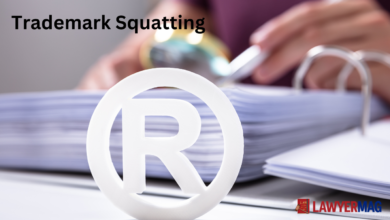Business Dispute Resolution in the UK: Arbitration vs. Litigation
This article explores the nuances of Business Dispute Resolution in the UK, comparing arbitration and litigation to help business owners.

Business disputes are an inevitable part of operating in the UK’s dynamic commercial landscape. Whether it’s a contract disagreement, partnership fallout, or intellectual property conflict, how businesses resolve disputes can significantly impact their finances, reputation, and operations. Business Dispute Resolution encompasses various methods, with arbitration and litigation being two of the most prominent approaches. This article explores the nuances of Business Dispute Resolution in the UK, comparing arbitration and litigation to help business owners and legal professionals make informed decisions. By understanding the benefits, drawbacks, and processes of each, you can choose the most suitable path for resolving commercial disputes.
What is Business Dispute Resolution?
Business Dispute Resolution refers to the processes used to settle conflicts arising in commercial settings. These disputes can involve contractual breaches, shareholder disagreements, payment disputes, or intellectual property issues. In the UK, businesses have several options for resolving disputes, including negotiation, mediation, arbitration, and litigation. While negotiation and mediation focus on collaborative solutions, arbitration and litigation are more formal processes often pursued when informal methods fail. Choosing the right approach for Business Dispute Resolution depends on factors like cost, time, confidentiality, and the desired outcome.
Understanding Arbitration in Business Dispute Resolution
Arbitration is a private, consensual process where parties agree to have their dispute resolved by an impartial third party, known as an arbitrator or arbitral tribunal. Arbitration is widely used in Business Dispute Resolution in the UK due to its flexibility and confidentiality. Here’s a closer look at how arbitration works and its key features:
How Arbitration Works
In arbitration, the disputing parties agree to submit their case to an arbitrator, who acts as a private judge. The arbitrator reviews evidence, hears arguments, and delivers a binding decision, known as an award. This process is governed by the Arbitration Act 1996 in the UK, which provides a legal framework for arbitration proceedings. Parties can choose their arbitrator, agree on procedural rules, and decide on the venue and timing of the arbitration, making it a highly customizable form of Business Dispute Resolution.
Advantages of Arbitration
- Confidentiality: Unlike court proceedings, arbitration is private, ensuring sensitive business matters remain out of the public eye. This is particularly valuable for businesses concerned about protecting trade secrets or maintaining their reputation during Business Dispute Resolution.
- Speed: Arbitration is generally faster than litigation. Parties can schedule hearings at their convenience, avoiding the backlog often seen in UK courts.
- Expertise: Arbitrators are often chosen for their expertise in specific industries, such as construction, finance, or technology, ensuring informed decisions tailored to the dispute’s context.
- Flexibility: Arbitration allows parties to tailor the process to their needs, including choosing the rules, language, and location of the proceedings.
- Enforceability: Arbitration awards are enforceable in over 150 countries under the New York Convention, making arbitration a preferred choice for international Business Dispute Resolution.
Disadvantages of Arbitration
- Cost: While arbitration can be cost-effective compared to litigation, arbitrator fees, legal representation, and administrative costs can add up, especially in complex cases.
- Limited Appeals: Arbitration awards are generally final, with limited grounds for appeal under the Arbitration Act 1996. This can be a drawback if a party believes the arbitrator made an error.
- Lack of Precedent: Unlike litigation, arbitration decisions do not set legal precedents, which may limit their broader impact on Business Dispute Resolution practices.
Understanding Litigation in Business Dispute Resolution
Litigation involves resolving disputes through the UK court system, where a judge delivers a legally binding decision after reviewing evidence and arguments. Litigation is a traditional and formal approach to Business Dispute Resolution, often pursued when parties cannot reach a settlement through negotiation or alternative methods.
How Litigation Works
In the UK, litigation typically begins with one party issuing a claim in a court, such as the High Court or County Court, depending on the dispute’s value and complexity. The process involves pre-action protocols, filing claims, exchanging evidence, and attending a trial where a judge makes a ruling. Litigation is governed by the Civil Procedure Rules (CPR), which ensure fairness and transparency in Business Dispute Resolution.
Advantages of Litigation
- Legal Precedent: Court rulings in litigation can set binding precedents, which provide clarity and consistency for future Business Dispute Resolution cases.
- Authority of the Court: Courts have the power to enforce interim measures, such as injunctions or asset freezes, which can be critical in disputes involving urgent remedies.
- Transparency: Litigation is a public process, which can be advantageous for businesses seeking to establish accountability or deter future disputes.
- Appeal Options: Unlike arbitration, litigation allows parties to appeal a court’s decision if they believe there was an error in law or procedure, offering an additional layer of recourse in Business Dispute Resolution.
Disadvantages of Litigation
- Time-Consuming: Litigation can be lengthy, with complex cases taking years to resolve due to court backlogs and procedural requirements.
- Cost: Legal fees, court costs, and expert witness expenses can make litigation an expensive option for Business Dispute Resolution.
- Publicity: Court proceedings are public, which may expose sensitive business information and harm a company’s reputation.
- Adversarial Nature: Litigation is often confrontational, which can strain business relationships, particularly in disputes involving ongoing partnerships.
Arbitration vs. Litigation: Key Differences in Business Dispute Resolution
When choosing between arbitration and litigation for Business Dispute Resolution, businesses must weigh several factors to determine which method aligns with their goals. Below is a detailed comparison of the two approaches:
1. Confidentiality
- Arbitration: Offers a high degree of confidentiality, making it ideal for disputes involving proprietary information or sensitive commercial agreements. This privacy is a key reason many businesses opt for arbitration in Business Dispute Resolution.
- Litigation: Public by nature, with court records and hearings accessible to the public. This transparency can be a disadvantage for businesses prioritizing discretion.
2. Speed and Efficiency
- Arbitration: Typically faster, as parties can schedule hearings at their convenience and avoid court delays. Arbitration is often preferred for time-sensitive Business Dispute Resolution cases.
- Litigation: Can be protracted due to court schedules, procedural requirements, and potential appeals. Complex commercial disputes may take years to resolve in court.
3. Cost Considerations
- Arbitration: While potentially cheaper than litigation, costs can escalate depending on the arbitrator’s fees, legal representation, and administrative expenses. Businesses must budget carefully for arbitration in Business Dispute Resolution.
- Litigation: Often more expensive due to court fees, prolonged legal processes, and the need for extensive discovery. However, costs can vary depending on the case’s complexity.
4. Decision-Maker Expertise
- Arbitration: Parties can select arbitrators with specialized knowledge in the relevant industry, ensuring informed decisions in Business Dispute Resolution.
- Litigation: Judges are assigned by the court and may not have specific expertise in the dispute’s subject matter, although they are highly trained in legal principles.
5. Binding Nature and Appeals
- Arbitration: Awards are binding with limited appeal options, providing finality but potentially less recourse for dissatisfied parties in Business Dispute Resolution.
- Litigation: Court judgments can be appealed, offering a safety net but potentially prolonging the dispute resolution process.
6. Enforceability
- Arbitration: Arbitration awards are widely enforceable internationally under the New York Convention, making arbitration a strong choice for cross-border Business Dispute Resolution.
- Litigation: Court judgments are enforceable within the UK and in jurisdictions with reciprocal agreements, but international enforcement can be more complex.
Factors to Consider When Choosing Business Dispute Resolution Methods
Selecting the right approach for Business Dispute Resolution depends on the specific circumstances of the dispute. Here are key factors to consider:
- Nature of the Dispute: Complex or technical disputes, such as those in construction or intellectual property, may benefit from arbitration’s specialized arbitrators. Litigation may be better suited for disputes requiring legal precedent or urgent court orders.
- Confidentiality Needs: If protecting sensitive information is a priority, arbitration is often the preferred choice for Business Dispute Resolution.
- Time Sensitivity: Businesses needing swift resolution may opt for arbitration to avoid court delays.
- Cost Constraints: Both arbitration and litigation can be costly, so businesses should assess their budget and the potential financial impact of prolonged disputes.
- Relationship Preservation: Arbitration’s less adversarial nature may help maintain business relationships, while litigation’s confrontational approach can strain them.
- International Considerations: For disputes involving international parties, arbitration’s global enforceability makes it a popular choice for Business Dispute Resolution.
Legal Framework for Business Dispute Resolution in the UK
The UK has a robust legal framework supporting both arbitration and litigation. The Arbitration Act 1996 governs arbitration, ensuring fairness, impartiality, and enforceability of awards. For litigation, the Civil Procedure Rules (CPR) provide a structured process for resolving disputes in courts. Additionally, the UK’s judiciary is renowned for its independence and expertise, making it a trusted venue for Business Dispute Resolution. Businesses should consult legal professionals to navigate these frameworks and choose the most effective resolution method.
Trends in Business Dispute Resolution in the UK
The landscape of Business Dispute Resolution in the UK is evolving, with several trends shaping how businesses approach arbitration and litigation:
- Rise of Hybrid Models: Some businesses combine arbitration and mediation (known as “med-arb”) to achieve faster, more collaborative resolutions.
- Technology Integration: Online dispute resolution platforms are gaining traction, offering virtual arbitration and litigation hearings to streamline Business Dispute Resolution.
- Focus on Sustainability: Businesses are increasingly prioritizing cost-effective and time-efficient methods, boosting arbitration’s popularity.
- International Arbitration Growth: London remains a global hub for arbitration, with institutions like the London Court of International Arbitration (LCIA) handling complex Business Dispute Resolution cases.
Practical Tips for Effective Business Dispute Resolution
To maximize the effectiveness of Business Dispute Resolution, businesses should consider the following tips:
- Include Dispute Resolution Clauses: Incorporate clear arbitration or litigation clauses in contracts to streamline the resolution process.
- Seek Legal Advice Early: Consult experienced solicitors or barristers specializing in Business Dispute Resolution to assess your case and choose the best approach.
- Explore Alternative Methods: Consider mediation or negotiation before escalating to arbitration or litigation to save time and costs.
- Document Everything: Maintain thorough records of communications, contracts, and evidence to strengthen your case in either process.
- Understand Costs Upfront: Request detailed cost estimates for arbitration or litigation to avoid unexpected expenses during Business Dispute Resolution.
Conclusion
Business Dispute Resolution in the UK offers businesses a range of options to address commercial conflicts, with arbitration and litigation being the most prominent. Arbitration provides confidentiality, speed, and flexibility, making it ideal for businesses prioritizing privacy and efficiency. Litigation, on the other hand, offers transparency, legal precedent, and appeal options, suitable for disputes requiring authoritative court intervention. By understanding the advantages, disadvantages, and key differences between these methods, businesses can make informed decisions that align with their goals. Whether opting for arbitration’s tailored approach or litigation’s formal structure, effective Business Dispute Resolution requires careful planning, legal expertise, and a clear strategy to achieve the best possible outcome.











